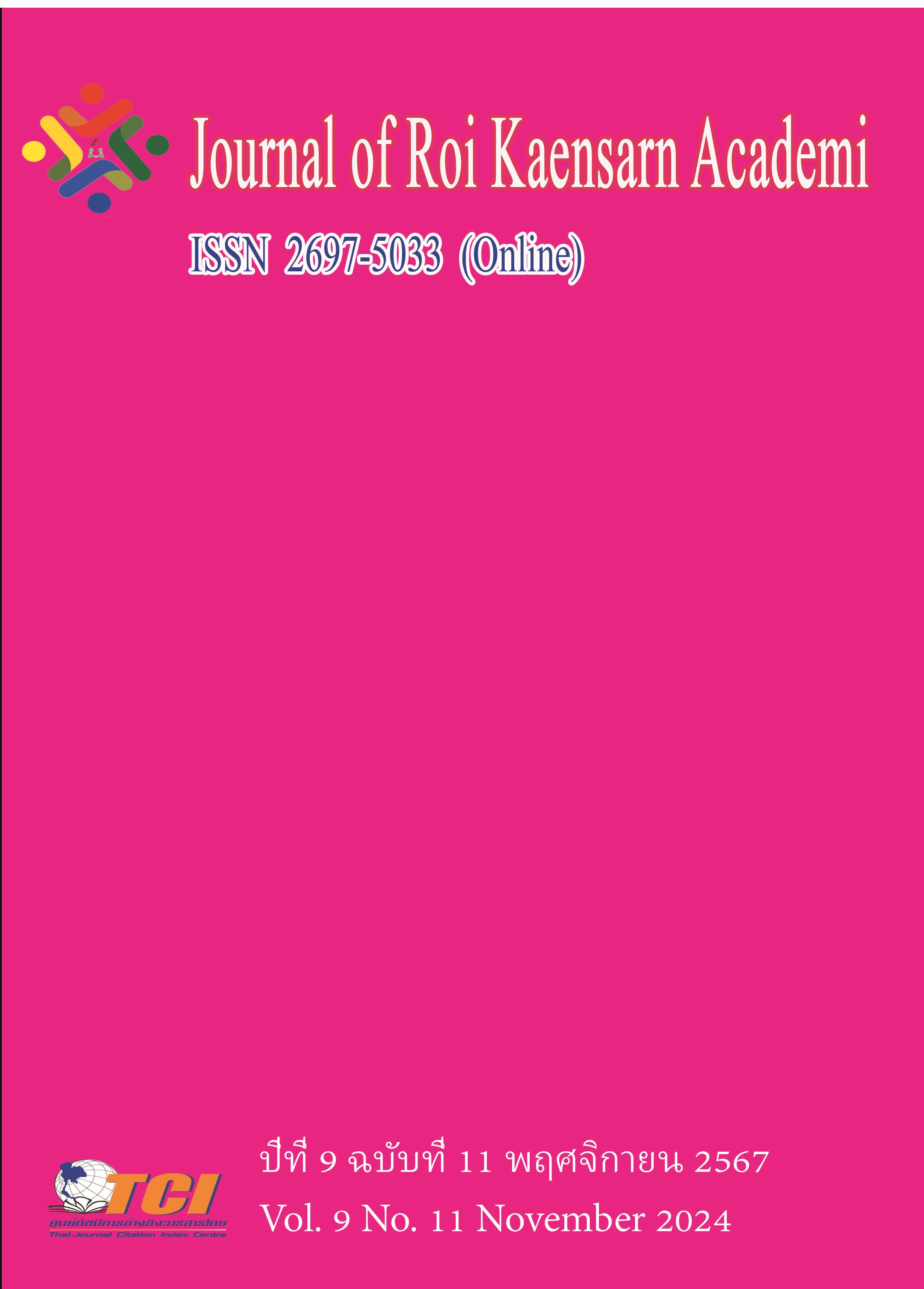The Harnessing Research-Based Learning to Empower Cognitive, Metacognitive, and Professional Competencies in Higher Education: A Case Study of Undergraduate Students Development in Early Childhood Education Program
Main Article Content
บทคัดย่อ
This study investigates the impact of Research-Based Learning (RBL) on the cognitive, metacognitive, and professional competencies of undergraduate students in the Early Childhood Education Program at Prince of Songkla University. The study aimed to assess improvements in critical thinking, problem-solving, independent research skills, and self-regulation. A mixed-methods approach was employed, involving 32 students. Quantitative data were collected through surveys, and qualitative insights were gathered from focus group discussions. The research results revealed significant improvements in students’ cognitive abilities, including critical thinking (Mean = 4.23, SD = 0.65) and problem-solving skills (Mean = 4.10, SD = 0.72). Students demonstrated enhanced metacognitive awareness (Mean = 4.25, SD = 0.60), indicating greater self-regulation in their learning processes. Self-regulation also showed a strong increase (Mean = 4.18, SD = 0.68). Paired samples t-tests confirmed statistically significant gains in all areas, with the highest improvement in metacognitive awareness (t = 5.23, p < 0.001). Correlation analysis revealed strong positive relationships between critical thinking, problem-solving, and metacognitive awareness (r > 0.6, p < 0.01). Qualitative data emphasized the role of student autonomy and faculty mentorship in fostering these skills. The findings conclude that RBL is an effective pedagogical approach for developing essential competencies, preparing students for academic and professional success. The study recommends improving faculty mentorship and research resources to optimize the implementation of RBL in higher education.
Article Details
เอกสารอ้างอิง
Banchi, H., & Bell, R. (2020). Theoretical frameworks for inquiry-based learning. Science Education Review, 19 (4), 28–40.
Biggs, J., & Tang, C. (2011). Teaching for quality learning at university. McGraw-Hill Education.
Bjork, R., Dunlosky, J., & Kornell, N. (2021). Metacognition and learning: Implications for educational practice. Annual Review of Psychology, 72 (1), 1–22.
Boekaerts, M. (2016). Promoting higher-order thinking skills through research activities. Journal of Cognitive Education, 24 (2), 123-145.
Boekaerts, M. (2016). The role of motivation and metacognition in self-regulated learning. Educational Psychologist, 51 (3), 206–224.
Brew, A. (2020). Research-based learning: A critical pedagogy for the university. Teaching in Higher Education, 25 (6), 709–723.
Chatterjee, D., & Corral, L. (2022). Enhancing student engagement through research-based learning in STEM education. Journal of Higher Education Pedagogy, 38 (2), 315–329.
De Jong, T., & Ferguson-Hessler, M. (2022). Cognitive flexibility and learning in higher education: Implications of research-based learning. Journal of Educational Psychology, 114 (3), 477–494.
Ellis, R., & Goodyear, P. (2021). The theory and practice of problem-based learning. Higher Education Research & Development, 40 (2), 192–205.
Greene, J. A., & Azevedo, R. (2021). The role of self-regulated learning in academic success and personal development. Educational Psychology Review, 33 (3), 515-532.
Greene, J. A., & Azevedo, R. (Eds.). (2021). The role of metacognition in learning and achievement. Cambridge University Press.
Gurung, R. A. R. (2017). Effective teaching strategies for enhancing student learning. American Psychological Association.
Hattie, J. (2009). Visible learning: A synthesis of over 800 meta-analyses relating to achievement. Routledge.
Healey, M., & Jenkins, A. (2009). Developing undergraduate research and inquiry. Higher Education Academy.
Kuhn, D., & Dean, D. (2004). Metacognition: A bridge between cognitive psychology and educational practice. Educational Psychologist, 39 (4), 199-212.
Kuh, G. D. (2008). High-impact educational practices: What they are, who has access to them, and why they matter. Association of American Colleges and Universities.
Moust, J. H. C., van Berkel, H. J. M., & Schmidt, H. G. (2007). The importance of faculty support in research-based learning. Studies in Higher Education, 32 (3), 207-222.
Moust, J. H., van Berkel, H. J. M., & Schmidt, H. G. (2007). Twelve years of experience with problem-based learning in Maastricht. Higher Education, 54 (4), 541–556.
OECD. (2020). Skills outlook 2020: In search of competency. OECD Publishing.
Piaget, J. (1954). The construction of reality in the child. Routledge & Kegan Paul.
Schraw, G., & Moshman, D. (1995). Metacognitive theories. Educational Psychology Review, 7 (4), 351-371.
Vygotsky, L. S. (1978). Mind in society: The development of higher psychological processes. Harvard University Press.
Zimmerman, B. J. (2002). Becoming a self-regulated learner: An overview. Theory into Practice, 41 (2), 64-70.
Zohar, A., & Barzilai, S. (2021). Metacognition and learning: Insights from recent research. Educational Psychologist, 56 (3), 165–178.

